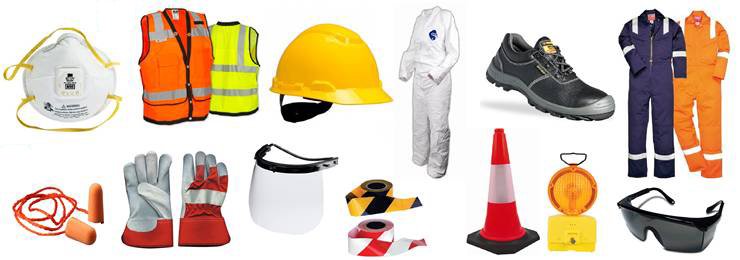Chemical industries are an essential component of modern civilization. However, the use of chemical substances can pose a significant risk to workers if proper safety measures are not taken. Hence, it is essential that all chemical factories and laboratories are equipped with the necessary safety equipment for chemical industry to ensure the safety of employees.
Here are some of the safety equipment that are commonly used in the chemical industry:

- Personal Protective Equipment (PPE)
Personal Protective Equipment (PPE) is the first line of defense against chemical hazards. PPE includes gloves, goggles, respirators, and protective clothing. The type of PPE required depends on the chemical and the risk level associated with its use. Some chemicals may require full-body suits and respirators, while others may require only gloves and goggles.
Gloves are the most commonly used PPE in chemical industries to protect the hands from chemical exposure. Rubber gloves, nitrile gloves, PVC gloves, and neoprene gloves are the most commonly used types of gloves in chemical plants. Protective goggles help to prevent eye damage caused by direct contact or splashes of chemicals. Respirators help to filter out harmful vapors, fumes, and dust particles from the air.
- Chemical Storage Cabinets
Chemicals are usually stored in large barrels, drums, or containers. To prevent accidental spills or leaks, it is critical to store chemicals in a safe and secure manner. Chemical storage cabinets provide a safe and secure place to store chemicals. Cabinets are usually made of durable materials like metal or polyethylene, and they are fire-resistant and leak-proof.
- Eyewash Stations and Showers
In case of accidental exposure to chemicals, quick action can make a difference in mitigating the damage caused. Eyewash stations and emergency showers are vital safety equipment for the chemical industry. They provide a quick means of decontamination and minimize the damage caused by chemical exposure. Eyewash stations flush out the harmful chemicals from the eyes within seconds of use. Emergency showers drench the entire body in water to remove the chemical from the skin, clothing, and hair.
- Fire Safety Equipment
Chemicals are highly flammable and can cause dangerous explosions if ignited. Hence, proper fire safety equipment is essential in chemical factories. Fire extinguishers, fire blankets, and sprinkler systems are the most commonly used fire safety equipment in chemical industries. Fire extinguishers are placed at strategic locations around the factory to ensure quick access in the event of a fire. Fire blankets are used to cover fires in small areas and are made of insulating materials that deprive the fire of oxygen to put it out. The sprinkler system is designed to detect the fire and release water to control the spread of the flames.
- Chemical Resistant Flooring and Coatings
Chemical resistant flooring and coatings are used to protect the factory floors and walls from chemical damage. The flooring and coatings are designed to resist the corrosive effects of chemicals and ensure easy maintenance. They also provide a non-slip surface to prevent accidental falls.
- Ventilation Systems
Ventilation is critical in chemical factories as it helps in the removal of harmful fumes and vapors. Inhaling chemical fumes can cause significant damage to the lungs. The ventilation system provides fresh air to inhale and helps to dilute the concentration of harmful substances in the air. Proper ventilation ensures a safe working environment for all employees.
- Safety Signs and Labels
Proper labeling of chemical containers and equipment is essential in chemical factories. Labels provide necessary information regarding the contents and hazards associated with the chemical. Safety signs communicate essential safety information to employees and visitors. They provide information regarding the location of PPE, emergency exits, and other vital safety equipment.
The safety of employees in the chemical industry is of paramount importance. Proper safety equipment such as Personal Protective Equipment, Chemical Storage Cabinets, Eyewash Stations and Showers, Fire Safety Equipment, Chemical Resistant Flooring and Coatings, Ventilation Systems, and Safety signs and labels must be used to minimize the risks associated with chemical exposure. Providing a safe working environment is not only essential for the well-being of employees but also ensures increased productivity and better financial outcomes in the long term.


